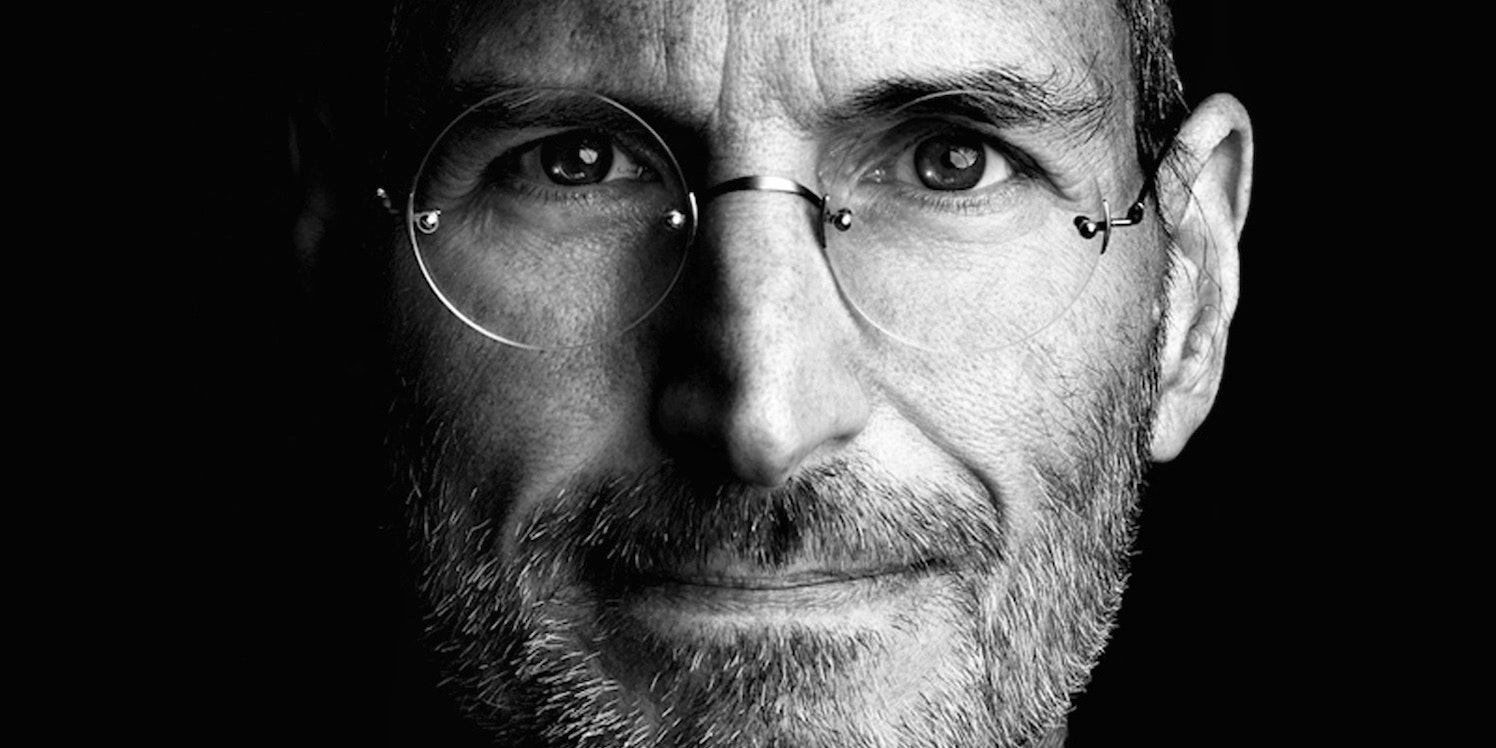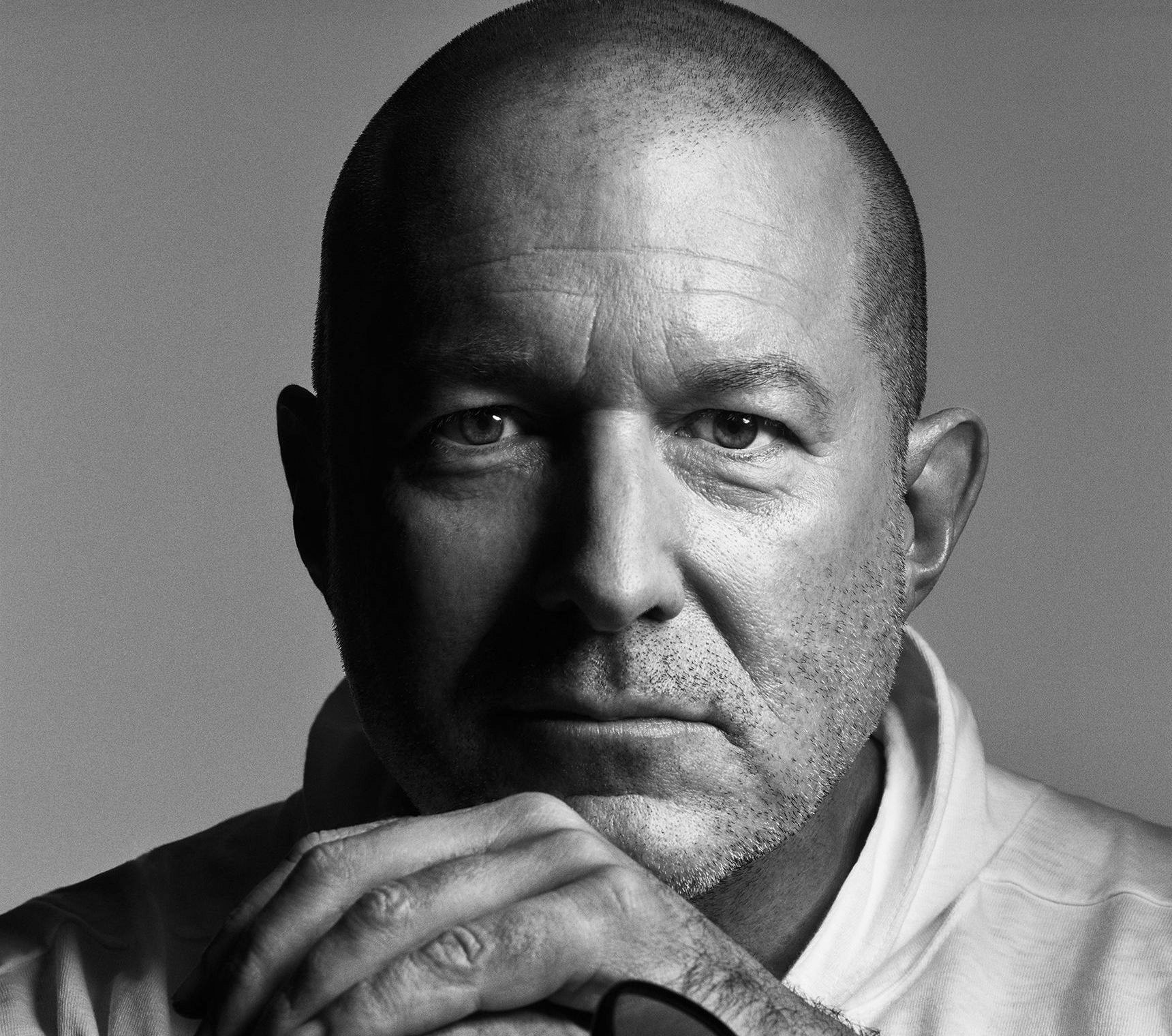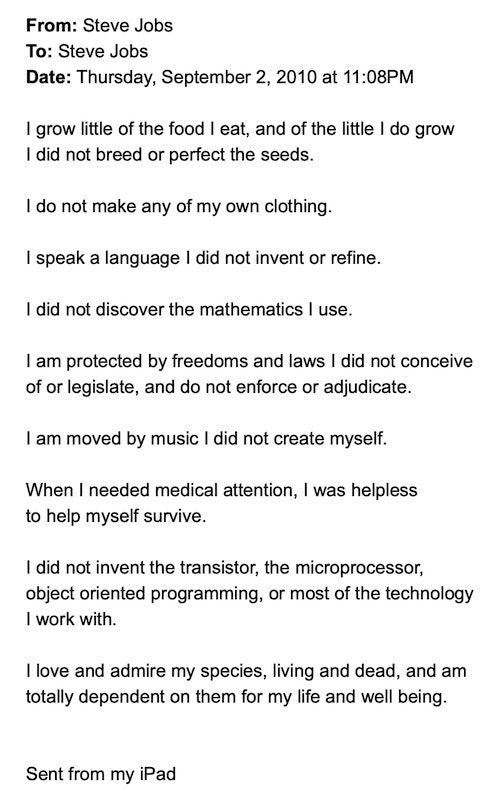Apple Reaches for Greatness Without Apology

I've collected bits of information about Apple that I have found interesting and/or inspiring and could never really muster a cohesive post from them. But everytime I read them I felt inspired. Even the title of of this post is inspirational - To me it sums up Apple in six words.
I decided to share my collection of notes in raw form below in the hopes they inspire you as well.
I haven’t got any sort of odd chip on my shoulder about proving anything to myself or anybody else. And remember, though the outside world looks at success from a numerical point of view, my yardstick might be quite different than that. My yardstick may be how every computer that’s designed from here on out will have to be at least as good as a Macintosh.
- Steve Jobs, 1985
Insanely Great
Market share and profitability are only outcomes. They are not Apple’s purpose; its mission is to achieve the "insanely great". It is as if they are on an ongoing Grail quest. (As Professor Henry Jones said to Indiana: "The search for the Grail is the search for the Divine in all of us.")
Apple Advertising
"As you probably know, there is a great deal of copy-catting in advertising and marketing. But here's the thing: when we present case studies of great marketing, we don't use Apple anymore because it is viewed as an outlier of such magnitude that many of us in the industry regard it as inimitable.
Our clients feel like there is nothing to learn from Apple because if you could deliver – with nearly every single product – an amazing user experience, genuine technical innovations, uncompromisingly stylish packaging AND be backed by a company who is unafraid to pursue a singular vision vs. what the focus groups say, then it'd be EASY to do great marketing because all you'd have to do is a great product demo. Which, by the way, is exactly what most Apple product ads are."
Apple Usability
"I worked for Apple in New York City for a little over a year. Does the company want to push product? Yes. Does it want to make a profit? Of course. BUT it also has created life-changing technologies, particularly for those with disabilities.
There are voice-over features for those with vision issues, notepads and video communication features for those with hearing disabilities. I remember selling an iPhone to a woman who was blind and teaching her how to use the voice-over features and it was extraordinary. She is now able to be a part of this new wave of communication and inter-connectedness. I also remember a group of deaf men looking to upgrade their iPhones as well. Their fingers were flying across the screen as they were using the Notepad app to communicate with me (as someone not fluent in ASL). For many people these aren't just frivolous technologies, they truly change the way people are able to connect within our able-centric society. They create simple linkages where before there was frustrations, disadvantages, and impossibilities."
Apple Style
"This is certainly why my own conversion to Apple, and my deep loyalty to the company and its products, somehow felt comforting in the last decade. Their style elevates me, their power and reliability I have come to take for granted. Their stores have the innovation and beauty that a renewed Christianity would muster in its churches…"
"But if those translucent, airy, elegant stores do not evoke a secular kind of church, then I don't know what does. "Style" is in some ways the most sublime and mysterious of product attributes. And nothing beats Apple's style."
Apple Accountability
One lesson could be called the "Difference between the Janitor and the Vice President," and it's a sermon Jobs delivers every time an executive reaches the VP level. Jobs imagines his garbage regularly not being emptied in his office, and when he asks the janitor why, he gets an excuse: The locks have been changed, and the janitor doesn't have a key. This is an acceptable excuse coming from someone who empties trash bins for a living. The janitor gets to explain why something went wrong. Senior people do not.
"When you’re the janitor," Jobs has repeatedly told incoming VPs, "reasons matter." He continues: "Somewhere between the janitor and the CEO, reasons stop mattering." That "Rubicon," he has said, "is crossed when you become a VP." (Apple has about 70 vice presidents out of more than 25,000 non-retail-store employees.)
Jobs indoctrinates a culture of responsibility by hosting a series of weekly meetings that are the metronome that sets the beat for the entire company. On Mondays he meets with his executive management team to discuss results and strategy as well as to review nearly every important project in the company. On Wednesdays he holds a marketing and communications meeting. Simplicity breeds clarity, as Jobs himself explained in a 2008 interview with Fortune.
"Every Monday we review the whole business," he said. "We look at every single product under development. I put out an agenda. Eighty percent is the same as it was the last week, and we just walk down it every single week. We don’t have a lot of process at Apple, but that’s one of the few things we do just to all stay on the same page."
The accountability mindset extends down the ranks. At Apple there is never any confusion as to who is responsible for what. Internal Applespeak even has a name for it, the "DRI,"" or directly responsible individual. Often the DRI's name will appear on an agenda for a meeting, so everybody knows who is responsible. "Any effective meeting at Apple will have an action list," says a former employee. "Next to each action item will be the DRI." A common phrase heard around Apple when someone is trying to learn the right contact on a project: "Who's the DRI on that?"
Lashinsky, Adam (2011). Inside Apple — From Steve Jobs down to the janitor: How America's most successful – and most secretive – big company really works.
Remembering Steve Jobs

Following Steve Jobs’s death on October 5, 2011, Sir Jony Ive wrote this remembrance in which he reflects on the spirit of their collaboration. These words inspire me deeply in ways I cannot completely express. I added this section on October 5th, 2021 on the tenth anniversary of Steve's passing.
"He was without doubt the most inquisitive human I have ever met. His insatiable curiosity was not limited or distracted by his knowledge or expertise, nor was it casual or passive. It was ferocious, energetic and restless. His curiosity was practiced with intention and rigor.
Many of us have an innate predisposition to be curious. I believe that after a traditional education, or working in an environment with many people, curiosity is a decision requiring intent and discipline.
In larger groups our conversations gravitate towards the tangible, the measurable. It is more comfortable, far easier and more socially acceptable talking about what is known. Being curious and exploring tentative ideas were far more important to Steve than being socially acceptable.
Our curiosity begs that we learn. And for Steve, wanting to learn was far more important than wanting to be right.
Our curiosity united us. It formed the basis of our joyful and productive collaboration. I think it also tempered our fear of doing something terrifyingly new."
- Sir Jony Ive
Steve Jobs and Gratitude:
Note: Steve Jobs died on October 5, 2011, at the age of 56. This was written approximately one year before he died.

References:
- Lashinsky, Adam (2011). Inside Apple — From Steve Jobs down to the janitor: How America's most successful – and most secretive – big company really works.
- Apple And Our Culture
- How Steve Jobs 'out-Japanned' Japan
- Jony Ive on What He Misses Most About Steve Jobs
